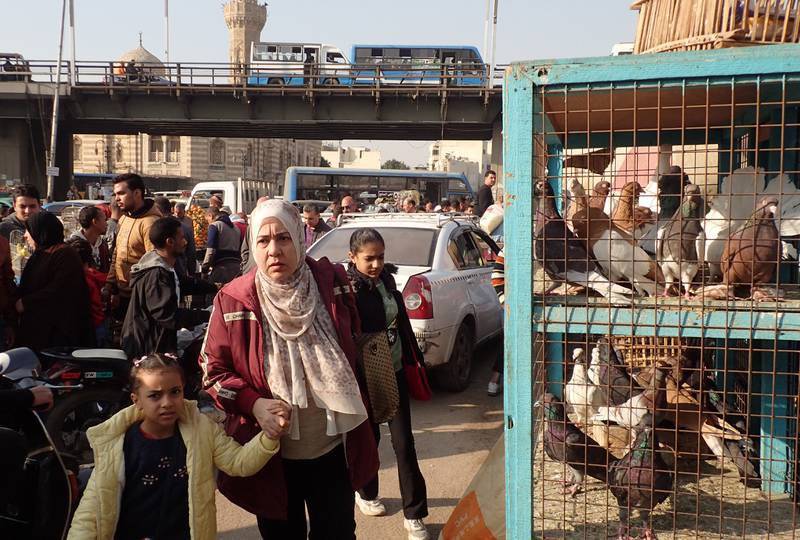According to results that were provided by the national statistics agency Capmas on Thursday, Egypt’s annual inflation skyrocketed to 25.8 percent in January, up from 21.3 percent in the previous month. This mark represents the highest level in more than five years.
The increase, which was the most since December 2017, came as a surprise to analysts, who had forecasted a small increase to 23.75 percent this week. The hike was the greatest since December 2017.
The skyrocketing inflation is a reflection of the difficulty that the majority of Egyptians go through on a daily basis in order to make ends meet.
Egypt has a population of 104 million people, about 30 percent of whom live in poverty, with many more individuals living on the edge of poverty.
The inflation estimates released on Thursday come in the wake of a slew of currency devaluations that began in March of the previous year and collectively wiped out over half of the value of the Egyptian pound.
A constant lack of foreign currency contributes to the economic troubles of the Arab nation with the most inhabitants. This deficit causes ongoing delays in bringing imports into the country, which in turn leads to shortages of certain items and the raw materials used in production.
The most recent numbers were released only one day after Prime Minister Mostafa Madbouly said that his administration plans to sell shares in 32 state-owned firms between the present time and the end of the first quarter of 2024.
These include three banks and two corporations held by the military, in addition to businesses in the fields of insurance, energy, power, and port operations.
On Thursday, President Abdel Fattah El Sisi said that the government was ready to present all of the businesses that are managed by the National Service Projects Organisation to potential investors.
In remarks that were shown on television, he said, “We’re prepared to provide all of the firms.”
In addition to that, he suggested the formation of a collaboration between these businesses and the private sector.
The majority of the upward pressure on inflation is being exerted by increased food costs, which constitute 32.7% of the total weight of the index’s basket.
For instance, the cost of meat and poultry saw a rise of 18.9% from the previous month to the current one in January. Eggs and dairy products had an increase of 10.3 percent, which is an increase from the 7.7 percent increase seen in December.
Various types of food that saw their prices go up in January include oils and fats (11.1 percent), bread and cereals (7.1 percent), fish and seafood (7.1 percent), and other types of seafood (9 per cent).
According to a note released by Naeem Research on Thursday, “The most recent inflation figure came in significantly higher than previously expected,” which was attributed to the fact that manufacturers continued to boost prices despite the devaluation of the local currency and the reduction in supply.
“We now estimate urban inflation to surpass 27% by the end of March,” the authors write. “We now factor in the additional consequences of increased fuel costs [expected to be 10%] into our model; in our opinion, this will need a raise in the policy rates of up to 200bps [basis points].”
